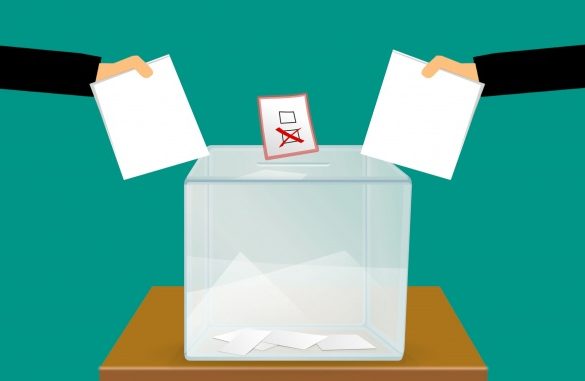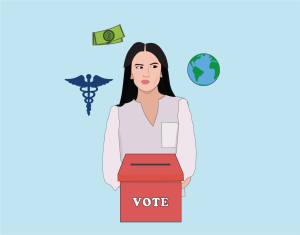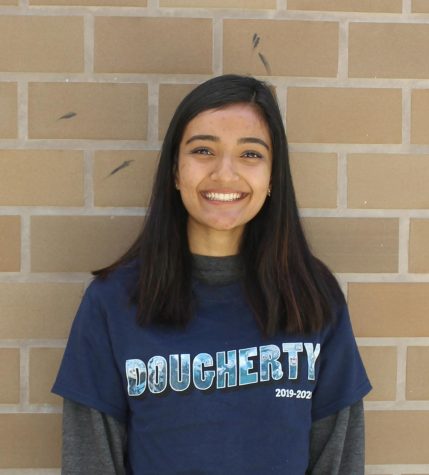Young Americans should use their power to vote

Young voters have the opportunity to shape the 2020 election. Will they use it?
February 29, 2020
In March 1965, U.S. troops arrived on the shores of Da Nang, Vietnam, and the antiwar movement across the U.S. erupted in protest.
Youth from across the country gathered with signs plastered with powerful statements, including the well-known phrases “Make Love Not War” and “Hell No! Don’t Go!” As more and more unwilling men were drafted to Vietnam, anger only grew, and an important question was raised: how can we be old enough to be drafted, but not old enough to vote?
Following persistent action from youth across the country, the 26th Amendment was ratified in 1971, lowering the voting age to 18 and prohibiting states from denying anyone ages 18 or older the right to vote. The hope was for the passionate, protesting youth of America to take their energetic desire to enact change to the ballot box.
However, despite continuously maintaining a dominating presence in advocacy, voter turnout amongst young people has been disappointingly low. American democracy is far from perfect, but the enduring emphasis placed on the “power of the people” is what makes the system both admirable and unique. But such “power of the people” cannot exist if the people themselves do not actively participate.
To clarify, the term “young people” refers to eligible voters between the ages of 18 and 24. According to the U.S. Census Bureau, only 40% of voters within this age demographic voted in 2016, compared with senior citizens (65 years or older), who had a 70% turnout; those 45 to 64 years old, who had a 66% participation, and 30 to 44-year-olds, who had a participation rate of 58%. Across the board, young voters lag behind pretty much every other age group by a significant percent, and the 2016 participation rate left millions of young Americans without a red, white and blue “I Voted” sticker.
So what’s the problem?
The first big difficulty explaining low youth turnout is a lack of information. Many people feel that if they don’t know their candidates they shouldn’t vote. For example, Haven Insights finds that 63% of voters reported not knowing who the representative of their district was.
While staying informed can appear daunting, there are many accessible resources available to help you. For example, you can access www.house.gov and type in your zip code for more information. By knowing who is on your ballot, you can make more informed decisions, with more confidence.
Another key way to stay informed is to regularly read credible news outlets. Staying informed will allow you as a voter to determine what is important to you and will empower you to act on that.
It is easy in a politically charged environment to develop what is referred to by PEW Research as “news fatigue,” in which the overwhelming amount of “toxic” political content leaves the reader overwhelmed. But the solution should not be to force out all the information.
There is a misconception that politics doesn’t affect everyone’s lives, and therefore, we should not stay continuously informed. However, while national politics may seem irrelevant to us, local politics definitely transform daily aspects of our lives. The rules for our schools, our community’s development and city budgets are all determined by local politicians. And for people who do care about national and international politics, local politicians have a say in that as well, as they partake in the federal system as a whole. On a daily basis, we are affected by the decisions we make in the political sphere. The cost of every item we purchase, the quality of our education, roads and water are just a few examples.
Despite being as large of a population as Baby Boomers, young voters, as the data shows, have recently turned out at considerably lower rates to the ballot. We have persistently complained about outdated aspects of the system, but it may be that our current situation exists because we have chosen not to act. We have the opportunity to change our world. The question now is: Will we?




